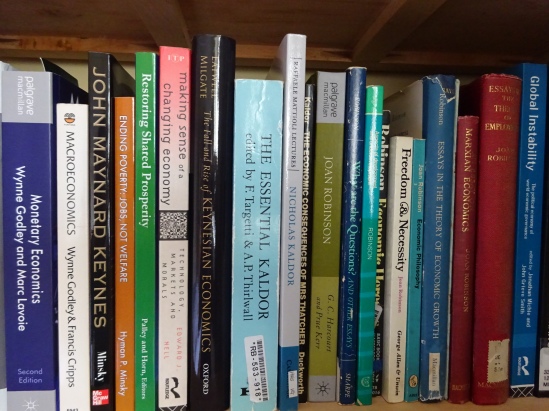 Since beginning my studies in economics more than twenty years ago, my attention has often been drawn to the differences between schools of thought and their various prescriptions for the economic system. Many of them seem to want to achieve some sort of utopia, or idealised society. To this end they have different and conflicting policy proposals for governments in power.
Since beginning my studies in economics more than twenty years ago, my attention has often been drawn to the differences between schools of thought and their various prescriptions for the economic system. Many of them seem to want to achieve some sort of utopia, or idealised society. To this end they have different and conflicting policy proposals for governments in power.
The far left and right often seek an authoritarian solution to economic problems, with forms of socialism and nationalism to the fore, although a democratic socialism is sometimes proposed by those on the left. A far-reaching transformation of society is demanded. This must stem from a deep dissatisfaction with the status quo, which may sometimes be warranted. However, radicals seem to demand dramatic change at all times, and where their ideas do not resonate with a satisfied majority they are likely to fail.
In the richest capitalist countries, periodic mass unemployment, instability and recession, as well as excessive or unjustified inequality, can lead voters to abandon the centre ground, and vote for something more radical. Such trends can be seen in many countries whose populations have suffered greatly since the Great Recession of 2008, whose effects continue to be felt. This has given rise to political instability and in many places a new populism: witness the rise of Donald Trump and Bernie Sanders in the US. Even if such characters do not win power, more mainstream politicians would be wise to recognise the concerns of their supporters.
Sometimes radicalism may well be needed under capitalism, to initiate a political, social and economic transformation which lays the foundations for future prosperity. The right as much as the left might be the ones to carry this out, with varying emphases in policy-making and the resulting outcomes affecting different social groups in different ways. Putting it another way, the distribution of costs and benefits will be uneven, and depending on the political and organisational power of those affected, will feed into the potential outcomes of government policies.
Views on capitalism vary greatly between those who care to reflect on its functioning, be they economists, politicians, citizens or otherwise. Socialists do seem to focus relentlessly on all the negative consequences of capitalist development, such as those mentioned above. Marx himself, while both predicting and supporting a revolution to establish a socialist society, did praise the productive powers of capitalism and its ability to transform the world and achieve rising prosperity for many. But he also hoped for something better.
Keynesians and post-Keynesians stick with capitalism, but see state intervention as vital to making the system a bit ‘nicer’. Their proposals aim at full employment, low inflation, reduced inequality and financial stability. They are less revolutionaries than reformers along social democratic lines, but retain some dissatisfaction with existing social outcomes. For me, their utopia remains idealistic and sadly unrealistic.
Having said that, for 25 years after the Second World War, full employment, rapid growth and widely shared prosperity were a reality in many capitalist nations, before the breakdown of the Bretton Woods system and the descent into stagflation (rising unemployment and inflation). Great things can certainly be achieved, but seem unlikely to last. This is my own pessimism. The system is forever evolving and new institutions and policies may be needed with the transformation that growth brings.
Free-market economists generally view state intervention as having negative consequences, although in neo-liberal form, their policies can also be interventionist. A crucial difference is that the latter will tend to favour private capital rather than labour, elites rather the ordinary citizen, although arguments about ‘trickle-down’ make claims that all will benefit from enriching those at the top. This could be a radical change if the status quo has favoured workers rather than entrepreneurs, or merely conservative if workers already have a weakened position in society, and policies leave the existing balance of power relatively untouched.
In today’s world of unstable politics and unstable economies, I find such rambling reflections helpful in beginning to make sense of current and possible future social and economic outcomes. The central bankers’ Great Moderation seems long gone, and disruption is all around.